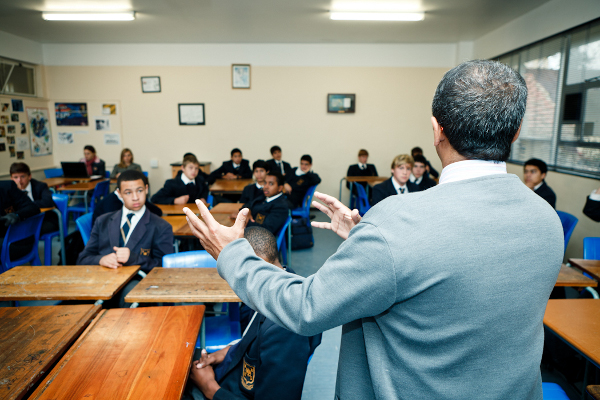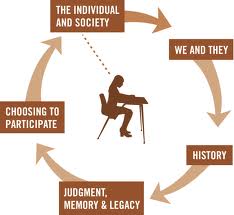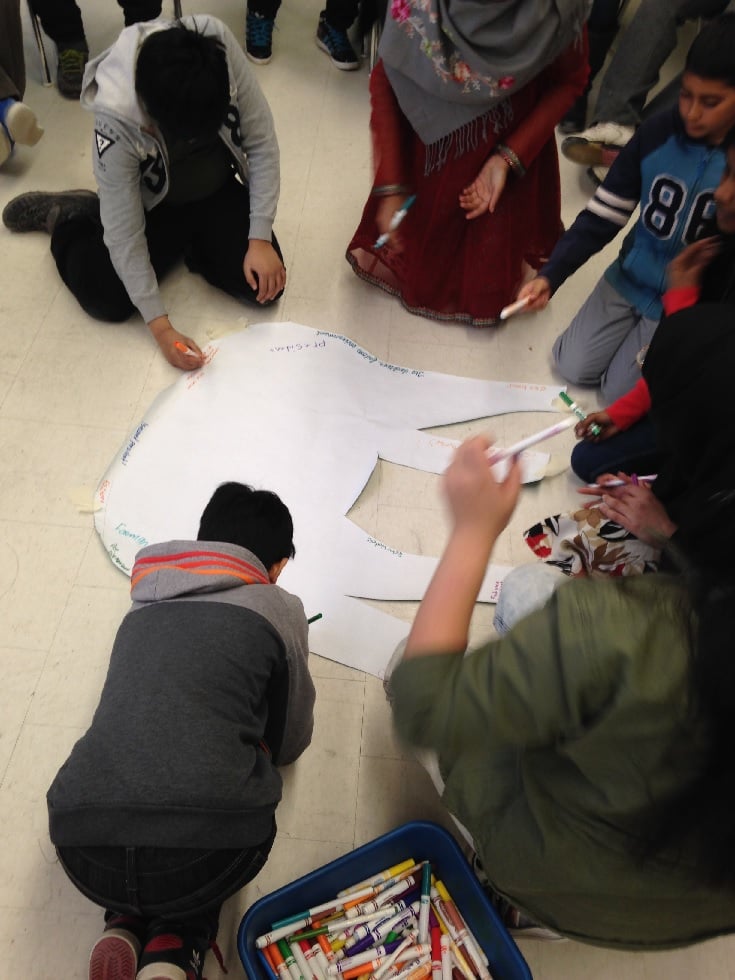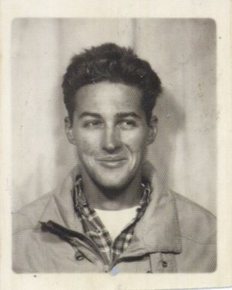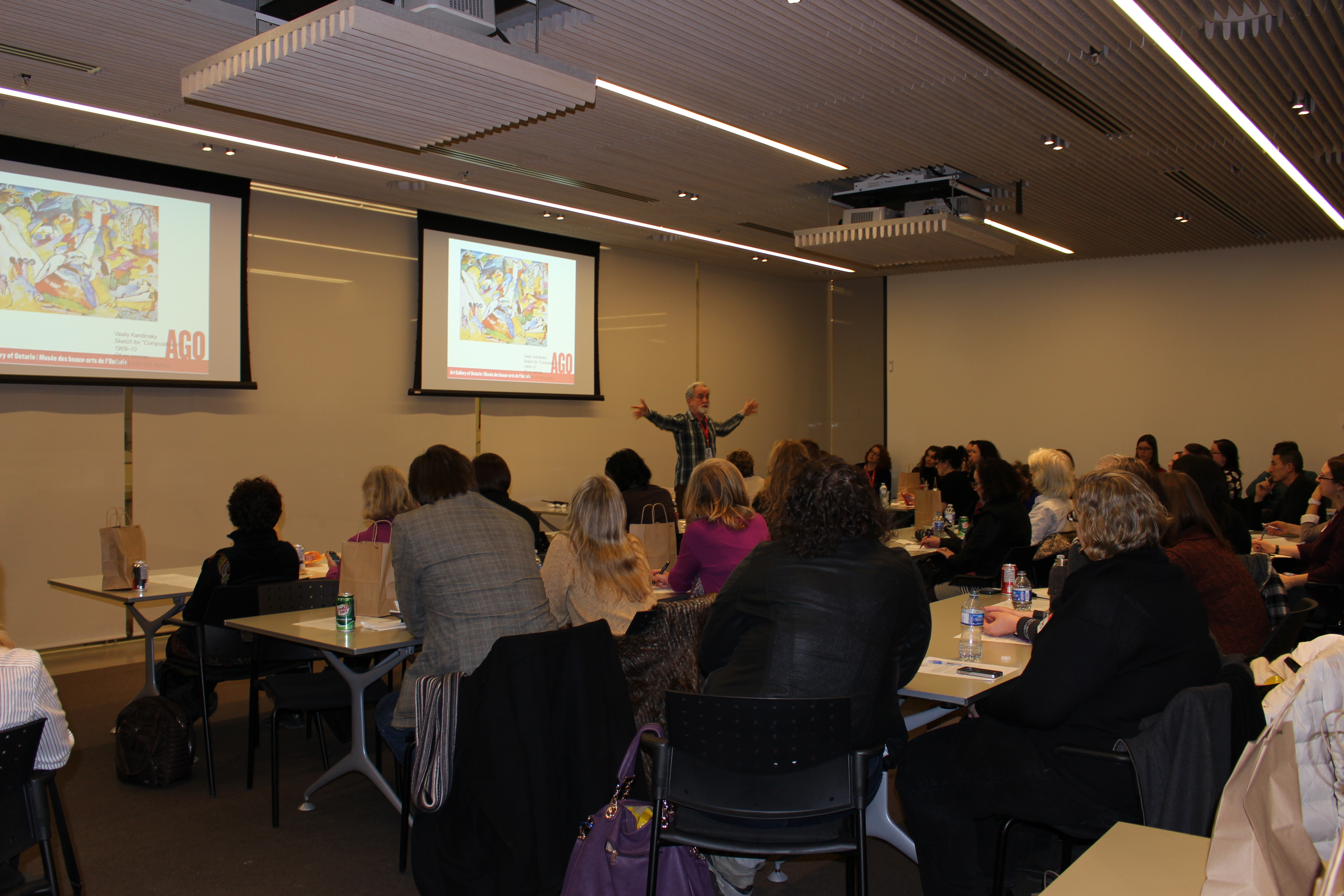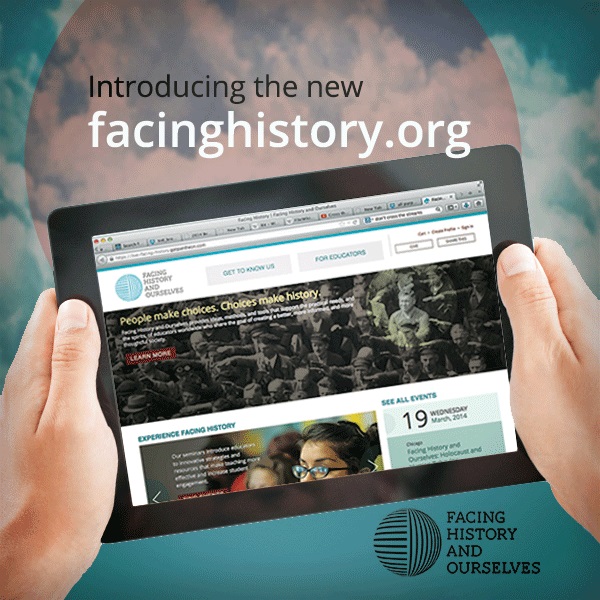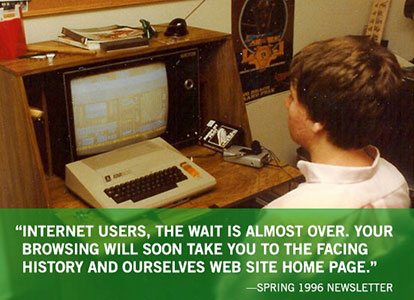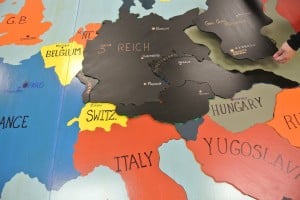Later this week, South Africa will celebrate 20 years of democracy – on April 27, 1994, citizens of the country voted alongside one another in the first post-apartheid elections. The case study of South Africa is an important one to introduce students to ideas about global citizenship, while teaching about the formation and strategies of the anti-apartheid movement. Check out the five resources below to help plan a lesson that explore issues of human rights and this important moment in South African history in your classroom:
Topics: Choosing to Participate, Human Rights, Facing History Resources, Identity, History, Memorial, current events, We and They, In the news, Social Justice
Finding Hope: How One Student Woke Me Up To Why I Teach Genocide Studies
Posted by Lanny Cedrone on April 10, 2014
“Sir, it keeps happening again and again. We don’t learn. I don’t think we’re going to get better. There doesn’t seem to be much hope.”
Three years ago a grade 12 student said this to me in my West and the World class. Every so often it echoes in my head. She was doing a research paper on Rwanda and the United Nations, and had done a significant amount of reading on the topic and she was passionately upset about how the world had allowed the Rwandan Genocide to happen.
Topics: Innovative Classrooms, genocide, Genocide and Crimes Against Humanities Course, Lesson Ideas, CHG, Inside a Genocide Classroom, Social Justice, reflection
Inside a Genocide Studies Classroom: Where to Begin? Identity
Posted by Lanny Cedrone on April 3, 2014
With any new course, teachers will often ask themselves, “Where do I begin?” This is an even more daunting question when dealing with such a difficult subject as genocide. In my preparation for teaching the Grade 11 Genocide and Crimes Against Humanities course at Louise Arbour Secondary School, I asked myself, “How can the students and I relate to situations that are so extreme and beyond most of our experiences?”
Topics: Identity, milgram, We and They, Strategies, Genocide and Crimes Against Humanities Course, Inside a Genocide Classroom
Here at Facing History and Ourselves, we are always reading! As the 8th Commandment of teaching Genocide says "Thou shalt read in order to understand how much more you need to read." As you readjust to being back from March Break feeling wonderfully refreshed, or are restlessly waiting for spring to arrive, and looking for something to pick up for a good read, here are some options, from us to you!
Topics: Books, Professional Development, Events, History, current events, We and They, genocide, In the news
Voice, Reward, and Expectations: Reflections on a Middle School Classroom
Posted by Ariel Vente on March 20, 2014
As elementary schools have just passed the mid-point of the school year, I’ve taken some time to reflect on the first half of the year. Schools are part of a larger educational system. However, our classrooms are also a microcosm of society; a community of members with jobs to do, and rules, norms and expectations, which members are expected to follow. But, as we are too well aware, within the larger society, we encounter issues of unfairness and injustice. I’ve been questioning my practice and asking myself: Does my classroom parallel the oppressions of our society? Am I reinforcing and reproducing what is happening in the larger society in my classroom?
Topics: Professional Development, Identity, Urban Education, Regent Park, Middle School, Culturally Responsive and Relevant Pedagogy, Social Justice, Deficit Thinking, reflection
Journaling in a Facing History Classroom: Finding Wisdom in Student Voices
Posted by Nathan Tidridge on March 18, 2014
I started journaling when I was a boy canoeing the waters surrounding my family cottage in Muskoka. My journals were filled with maps of all the places I “discov
ered” during my summers up north. As the years went by and I entered high school, the journal’s pages of maps became dotted with anecdotes from my life beyond that lake. It was around this time that I found a copy of The Journey is the Destination: The Journals of Dan Eldon at a local bookstore.
Topics: Identity, History, Memorial, We and They, Strategies, Genocide and Crimes Against Humanities Course, Lesson Ideas, English Classroom, CHG, Personal history, reflection
Infusing your Classroom with Colour: Facing History at the AGO
Posted by Cheryl Payne on March 10, 2014
Recently, Facing History and Ourselves and the Art Gallery of Ontario co-sponsored a workshop for the exhibit “The Great Upheaval.” This exhibit was on loan from the Guggenheim Collection and focused on European artists during 1910-1918. As a teacher, I was interested in this workshop for two reasons: to learn more about these artists and to discover new strategies to incorporate art into my teaching practice.
Topics: Art, Professional Development, History, workshop, Strategies, Lesson Ideas, big paper
Dear ONnetwork readers,
We are excited to announce the launch of the new facinghistory.org! We hope you will visit us and enjoy our new look and feel, mobile-friendly design, intuitive navigation, and enhanced search capabilities.
Topics: EdTech, Technology, Strategies
Happy (belated) New Year! A little while ago, we were looking through a stack of old Facing History newsletters, and had a good laugh at this ad from 1996:
Topics: Facing History Resources, Technology, current events, In the news
After recently watching the movie Indiana Jones and the Last Crusade with my sons, a thought hit me. In the movie, Indiana accidently comes across the gigantic map room where Nazis are secretly planning their conquests. Leaders and rulers – and everyday citizens – throughout history (like Winston Churchill, for example) have had map rooms. My students needed one too.
Topics: Art, Innovative Classrooms, Museum Studies, Genocide and Crimes Against Humanities Course, CHG

